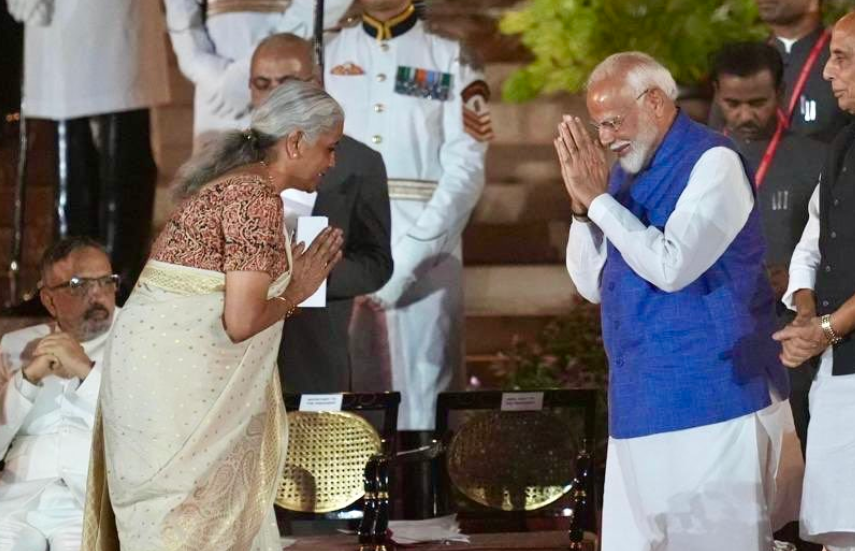
In a recent political development, a fresh war of words has broken out between the Congress party and the ruling Bharatiya Janata Party (BJP) over a controversial media report concerning Unified Payments Interface (UPI) transactions. The Congress party, citing certain news articles, accused the central government of considering the reintroduction of the Merchant Discount Rate (MDR) on UPI transactions above ₹3,000—a move it labeled as another form of "vasuli" or forced collection from the public.
Using these claims, Congress launched a scathing attack on the Modi government through social media, asking citizens to question this purported decision and calling it a backdoor taxation strategy. However, this allegation was quickly met with a strong rebuttal from the Ministry of Finance.
The Finance Ministry issued an official clarification on platform X (formerly Twitter), categorically denying any such move. It called the claims about MDR on UPI transactions as “completely false, baseless, and misleading.” The Ministry emphasized that such unverified and sensational speculations only create unnecessary fear and uncertainty among citizens. It reiterated that the government remains committed to maintaining low-cost digital transactions and clarified that no plans are underway to impose MDR on UPI payments—even those exceeding ₹3,000.
Alongside the Finance Ministry, the BJP also came out strongly against the Congress. BJP leader Amit Malviya accused the Congress of turning into a "rumor factory." He criticized the party for indulging in fear-mongering and for relying on unverified news sources to make political allegations. According to him, India deserves a responsible opposition that verifies facts before launching attacks, not one that thrives on speculative falsehoods.
News Channels pointed out that the Congress based its entire argument on articles quoting unnamed ministry sources without verifying the facts through official or reliable channels. said, led to unnecessary panic and misinformation among the public. they further added that since 2020, the government has consistently maintained a zero-MDR policy for UPI transactions, a position that remains unchanged.
In its attack, Congress had alleged that the government was taxing people across all sectors—from education to healthcare—and now was planning to target digital payments. BJP’s rebuttal, however, stressed that this was yet another example of Congress promoting fake news and misleading the public without due diligence.
In conclusion, both the BJP and the Ministry of Finance have jointly slammed the Congress party for spreading misinformation and attempting to create panic over UPI charges. The government has reiterated its stand that there are no plans to impose MDR on UPI transactions and accused the opposition of indulging in irresponsible politics. The episode highlights the growing tension between the ruling and opposition parties as they spar over digital economy policies, especially at a time when UPI accounts for nearly 80% of retail digital transactions in India, with person-to-merchant payments having already crossed ₹60 lakh crore back in 2020 itself.
Disclaimer:
This article is based on publicly available news reports, official statements, and political commentary. It is intended for informational purposes only. The blog does not endorse any political party or viewpoint. Readers are encouraged to verify facts from official government sources before forming opinions.




